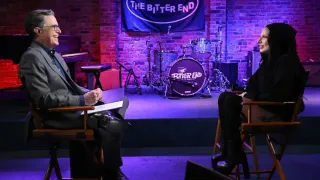February 28, 2015
Self Defense Claimed in SF Gay Man's '11 Death
Kilian Melloy READ TIME: 4 MIN.
The man accused of brutally stabbing and beating to death his gay older roommate in 2011 did it after the victim raped him, the man's attorney said as the trial opened in San Francisco Superior Court this week.
Waheed Kesmatyer, 28, is charged with murder in the death of Jack Baker, 67, whose nearly decapitated body was found in his Nob Hill apartment February 11, 2011.
In his opening statements Monday, February 23, Deputy Public Defender Hadi Razzaq laid out what Kesmatyer claims led up to the killing.
Razzaq told jurors that the night of the killing, about a week before Baker was found, Kesmatyer, who had suffered molestation and other trauma in his life, had woken up to Baker "raping him, the worst violation of trust."
Kesmatyer "felt helpless, small, and weak. He said, 'No,'" but he thought if he screamed, "nobody could hear him," said Razzaq.
After Baker left the room, Kesmatyer soon followed and told Baker he had to tell someone about what had happened. Baker laughed at him and moments later, knife in hand, he told Kesmatyer, "You're not going anywhere."
Baker cut Kesmatyer's finger after the younger man "put up his hands," said Razzaq. The men struggled with each other before Kesmatyer finally "picked up the knife and stabbed Mr. Baker."
What came next "was a blur," said Razzaq, but Kesmatyer, who was "more scared than he had ever been" thought "he was going to die if he didn't defend himself." Razzaq added that a neuropsychiatrist would testify that someone in such a situation acts with a "reptilian response."
'Trauma'
Kesmatyer "has suffered devastating trauma" and "tragedy in his life," said Razzaq. He was born in war-torn Afghanistan and spent "the first 10 years of his life" as an orphan before a Marin County couple adopted him, he said.
Razzaq choked up as he said that when Kesmatyer was 12, he was repeatedly molested "by the father of a neighborhood boy," but "never told anybody about it," and he tried to kill himself.
He said his client suffers from post-traumatic stress disorder and "psychotic disorder not otherwise specified." Razzaq also said that Kesmatyer had "one misdemeanor conviction for threatening his parents," among other troubles, but he'd also been a hard-working "track star."
In her opening statements Monday, Assistant District Attorney Diana Garcia described Baker as a "charming" and "eccentric" man who'd taken in Kesmatyer, who's straight, as a roommate around October 2010.
Garcia said Baker "had been beaten, strangled, and stabbed more than 80 times," and he'd suffered "a crushing blow to his ribs." Part of the blade of a paring knife was "lodged" in his skull, said Garcia, who said former Chief Medical Examiner Amy Hart would testify, "all these things collectively were fatal."
There was blood throughout much of the 1035 Bush Street apartment, including the ceiling of the dining room, where Baker's body was found, the kitchen, bathroom, and Kesmatyer's bedroom. A photo from that room that was displayed in court shows smears of blood down half the side of the door.
Razzaq said that Kesmatyer had gone into his bedroom and held the door shut, afraid that Baker was "just on the other side of it" and could still kill him.
Police arrested Kesmatyer in San Rafael the day after Baker's body was found for what Garcia called a "minor" offense.
She said Kesmatyer "was the sole source of DNA" connected with "many of the blood stains" found in the apartment.
Garcia told jurors "the one question I can't answer is why" Kesmatyer killed Baker, but she said it's clear he should be found guilty.
'Vulnerable' Young Men
Razzaq said Baker was "probably generous" and "charming," and he'd sometimes offered "vulnerable" young men a place to stay.
He said after his client had moved in with Baker, they had smoked marijuana together and sometimes shared meals, but Kesmatyer had become "uncomfortable" with Baker's actions, which included asking Kesmatyer to join him as he masturbated to pornography.
The younger man was "shy and unsophisticated" and reluctant to reproach Baker, said Razzaq.
Opening statements were followed by testimony from police and friends of Baker. At the end of Tuesday's session, after jurors left for the day, Garcia said, "I don't really understand what the defense is. Is it self-defense? Is it psych defense?"
Judge Kay Tsenin, who's overseeing the trial, said Garcia had raised a good question.
"What is it going to be?" asked Tsenin. "Is it psych defense or self-defense or both?" She said it seemed that "everything is getting thrown against the wall" to "see what sticks" and asked whether Razzaq's defense was "now becoming gay panic," which recently became illegal in California.
Razzaq said, "The defense is self-defense."
Kesmatyer, who's been in custody since February 2011, sometimes appeared wide-eyed and other times looked down at the table in front of him. He's expected to testify, and in an email Razzaq said, "It could be next week" when he takes the stand.






